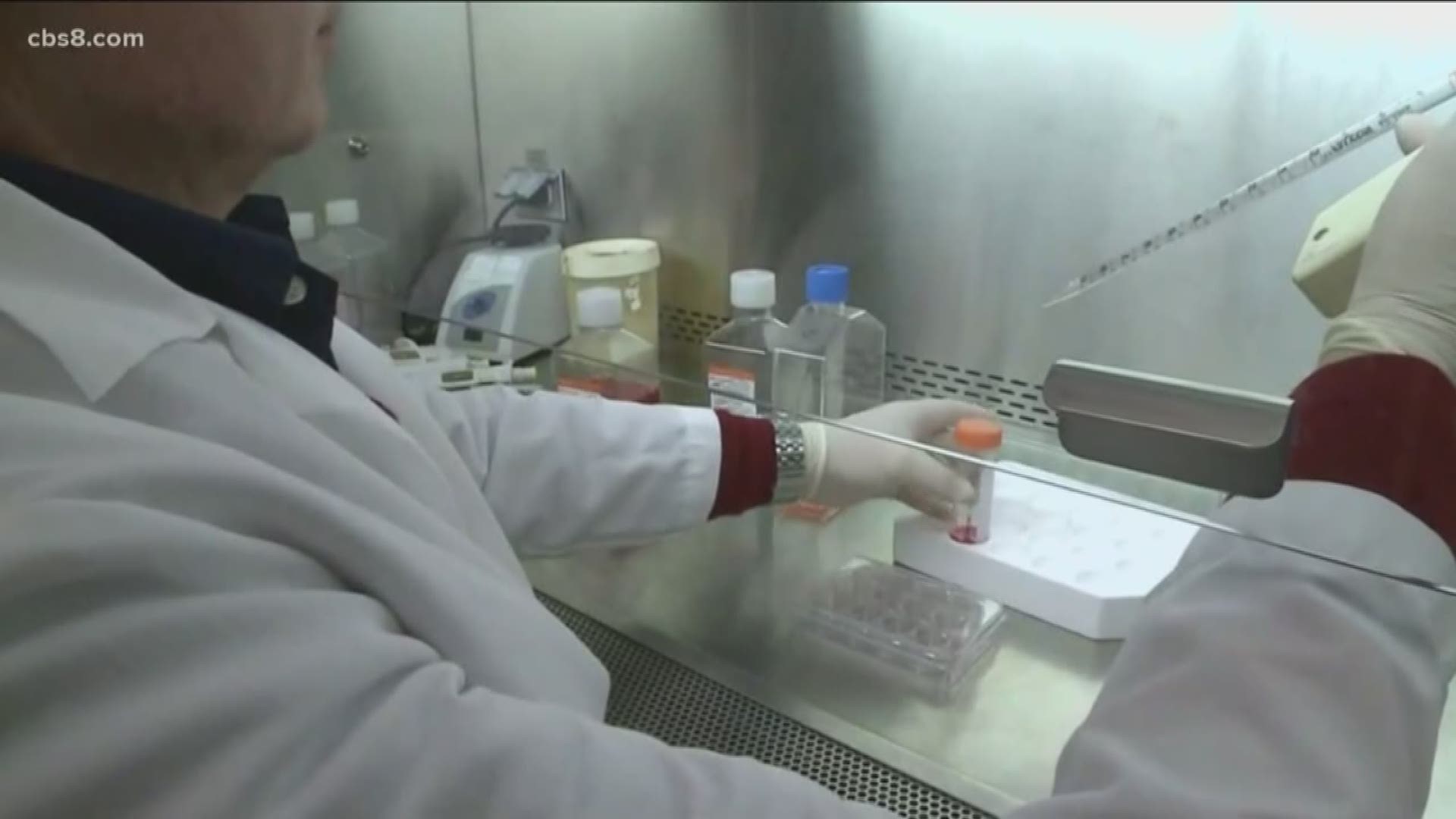SAN DIEGO — As the state of California prepares for a surge in coronavirus patients over the next few weeks, Governor Newsom announced Monday a new initiative to help health care workers in the state.
Gov. Newsom joined California health care workers on the front lines of the fight against COVID-19 at a news conference on Monday. He also provided an update on California’s response to the pandemic.
According to Newsom, California is preparing for an increase in the number of people who desperately need health care across the state of California during the COVID-19 pandemic. Newsom wants to bring back recently retired medical professionals and fast-track medical or nursing students into the work force.
"In order to meet this moment, we need you. We’re opening additional health care sites to treat people affected by COVID-19 and to relieve the pressure on our health care system by providing care for non-COVID-19 cases," Newsom said.
The state estimated there are 37,000 eligible people but the need would vary by city and demand.
Local hospitals like Palomar Medical Center said so far they're coping with the influx of coronavirus patients on top of demand from regular patients, but the situation is fluid and they may welcome the help from new graduates if things take a turn.
"You don't want to take a new graduate and drop them on the front lines, but that person can work very well within a hierarchy system," said Dr. Omar Khawaja, Palomar's chief medical officer. "We're looking at it and it's part of our crisis planning and being ready for it is the right thing to do."
They also are weighing potential health risks from bringing back recently retired staff, who may be at higher risk of coronavirus.
"This is the thing about health care providers and our community - people are thinking more about how to help than about [their] personal safety," said Dr. Khawaja
To ensure adequate staff for health care sites throughout California, Newsom said he's calling on health care providers, behavioral health professionals, and health care administrators to register immediately to help care for Californians who need help.
The following health care workers are needed:
- Physicians (MD, DO), including medical students
- Pharmacists
- Dentists
- Nurse practitioners
- Physician assistants
- Nurses (RN, LVN, CNA), including nursing students
- Behavioral health professionals (psychiatrist, psychologist, psychiatric nurse practitioner, LCSW, LMFT, LPCC)
- Respiratory therapists
- Paramedics
- Medical assistants
- Emergency medical technicians
Newsom signed an order waiving certain professional licensing and certification requirements to allow health care facilities to staff at least an additional 50,000 hospital beds. In the last four days, hospitalizations of coronavirus patients in California have doubled, and the number of patients in intensive care has tripled.
Newsom also said California health care workers are dealing with a shortage of protective gear across the state. On Sunday, San Diego County leaders addressed it at a news conference.
“We had an extensive call where we spent a lot of time talking about personal protective equipment and we continue to fight to get as much as we can from every available source,” said county supervisor Nathan Fletcher.
Newsom says more than 32 million N-95 masks have been distributed throughout the state, along with shields, gowns, and gloves.
As of Monday, California has 1,432 COVID-19 positive patients in hospital beds. 597 of those patients are in ICU beds, according to Newsom.
Newsom said health care workers will be paid and given malpractice insurance coverage.
-------------------------------------------------------------
View all coverage of coronavirus / COVID-19
NEWS 8 joined forces with The San Diego Foundation to raise IMMEDIATE, EMERGENCY FUNDS for our most vulnerable neighbors in need. Here is how you can help.
BACKGROUND:
According to the CDC, coronavirus (COVID-19) is a family of viruses that is spreadable from person to person. Coronavirus is believed to have been first detected in a seafood market in Wuhan, China in December 2019. If someone is sick with coronavirus, the symptoms they may show include mild to severe respiratory illness, cough, and difficulty breathing.
Currently, there is no vaccine, however, the CDC suggests the following precautions, along with any other respiratory illness:
Avoid close contact with people who are sick.
Avoid touching your eyes, nose, and mouth.
Stay home when you are sick.
Cover your cough or sneeze with a tissue, then throw the tissue in the trash.
Clean and disinfect frequently touched objects and surfaces using a regular household cleaning spray or wipe.
Wash your hands with soap and water for a minimum of 20 seconds.
The CDC also says facemasks should only be used by people who show symptoms of the virus. If you’re not sick, you do not have to wear a facemask.

